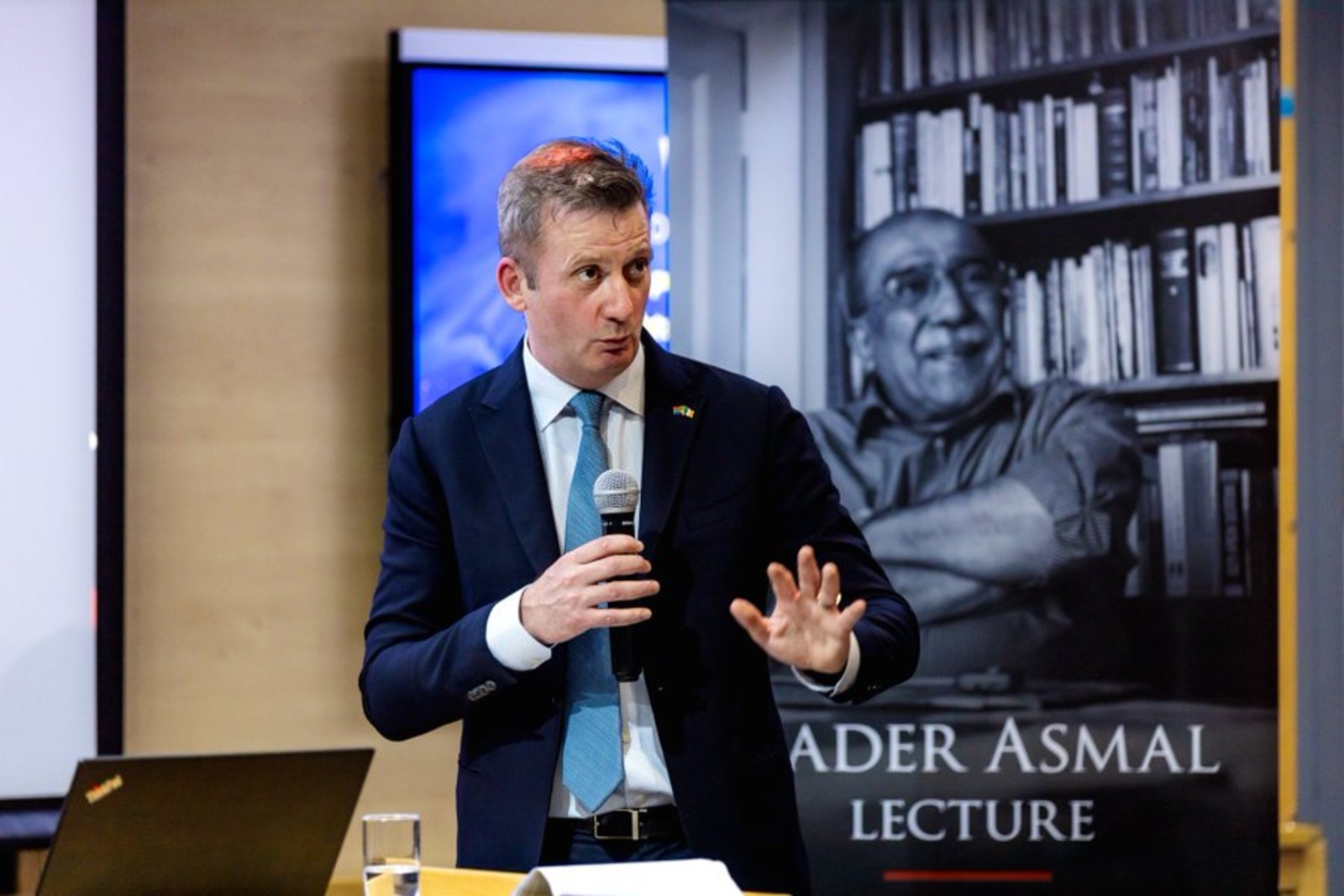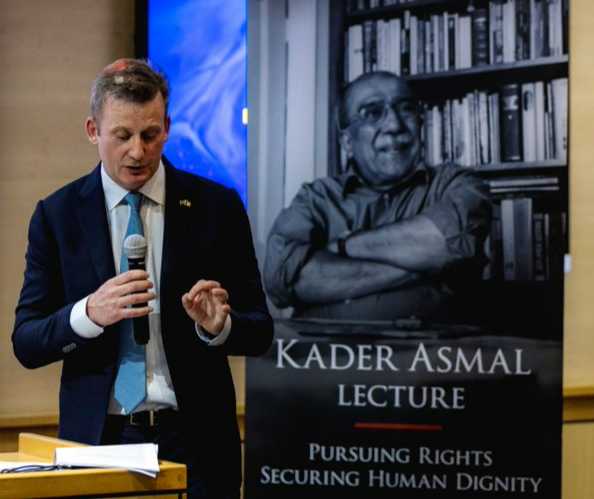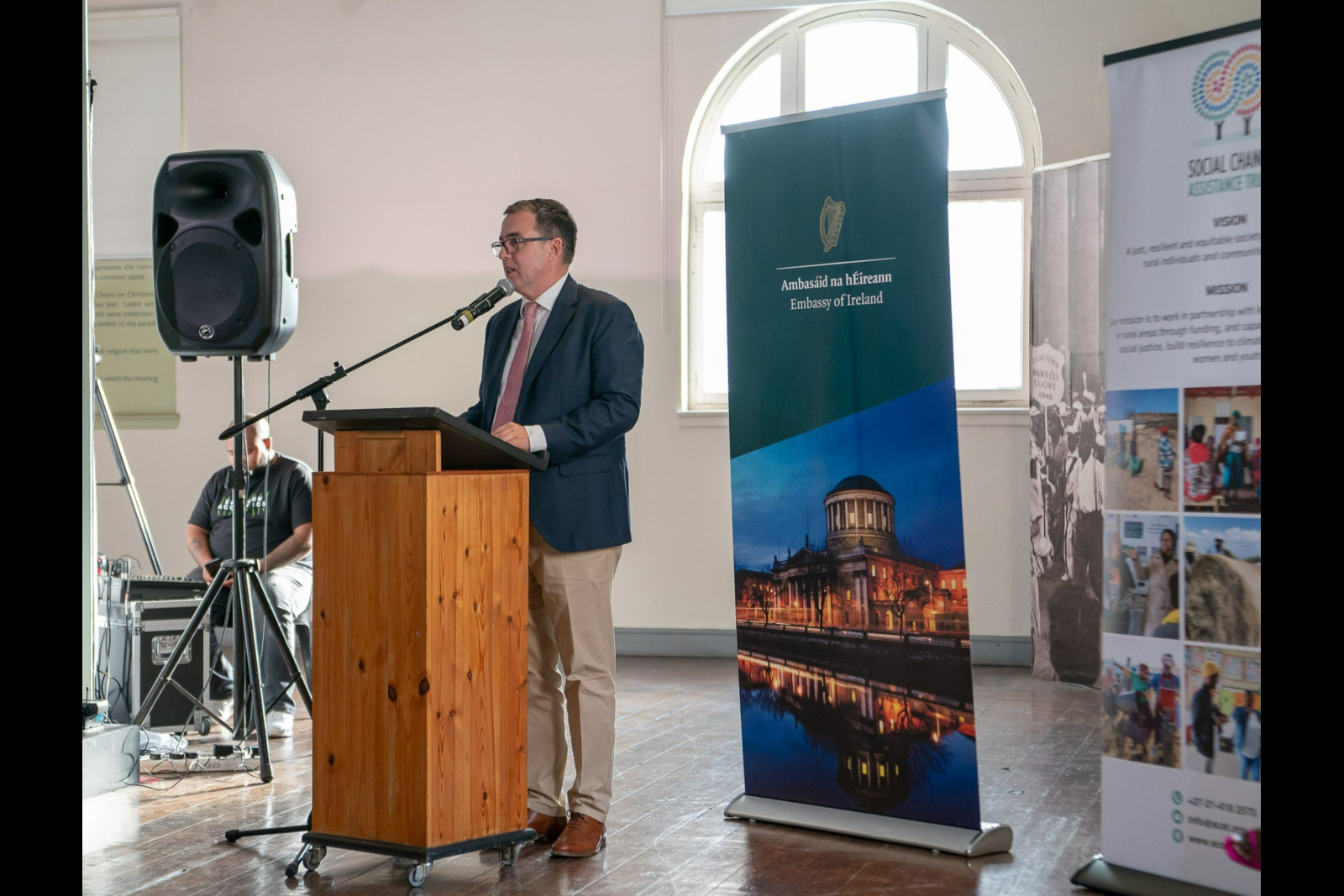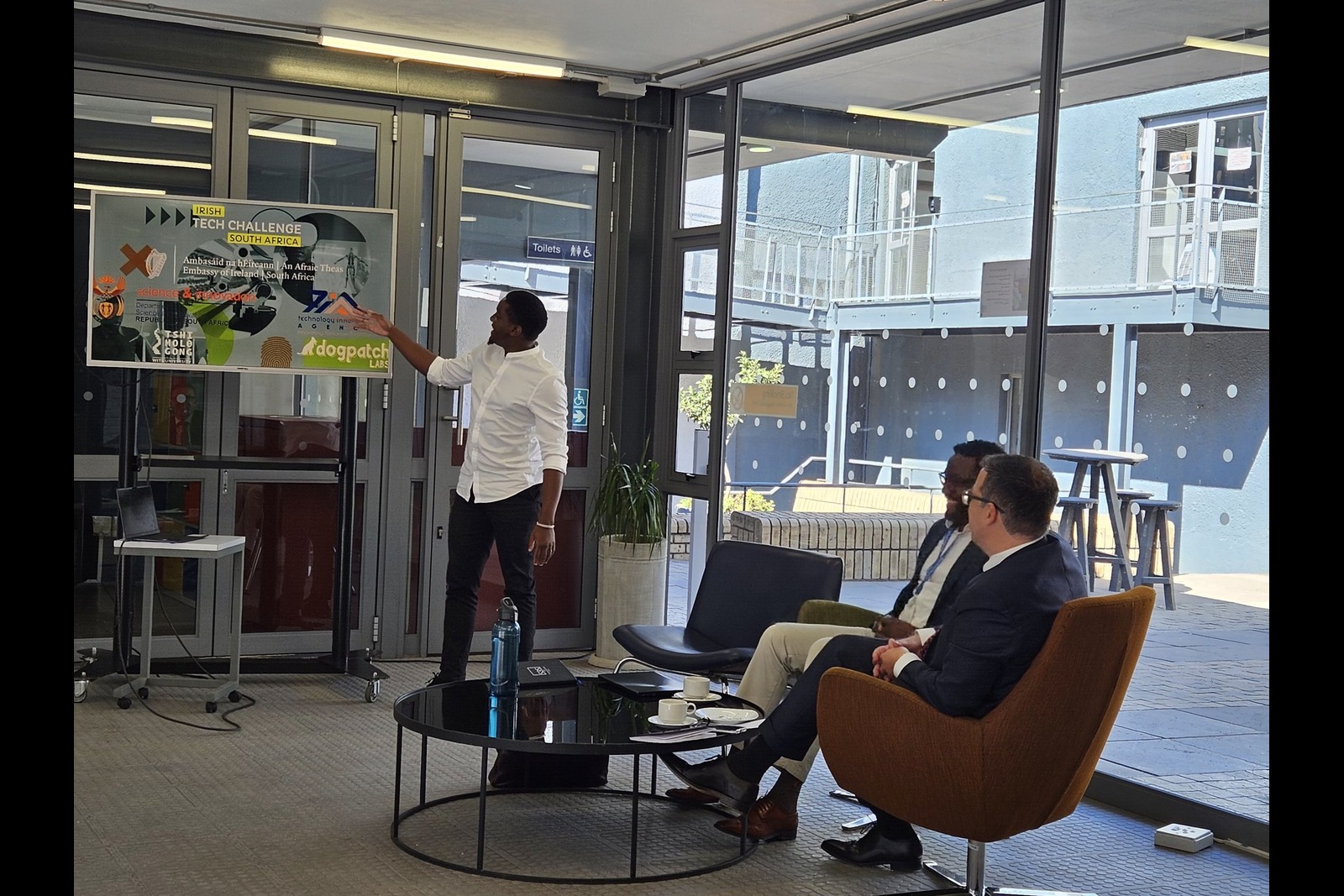Mark Garrett Delivers the 2023 Kader Asmal Lecture
News
19 October 2023
Mark Garrett, DG of the Law Society of Ireland, emphasising a point while delivering the 2023 Kader Asmal Lecture focusing on the Irish experience of coalition government.
As South Africa prepares for the 2024 General Election, the country may be headed for coalition government or co-governance at national level for the first time since the dawn of democracy.
This was the focus of the 2023 Kader Asmal Lecture at Wits University on Wednesday 18 October, where Mark Garrett, Director of the Law Society shared insights of the Irish experience of coalition government.
"From reflecting on both the broad Irish experience as well as my own I would argue that while coalition government is not straightforward, it has the potential to both offer stability in turbulent times while implementing a programme of significant reform," Garrett said as he unpacked the potential of coalition government.
"Over the last 15 years, Ireland has navigated several significant political and economic crises. While there are still significant social and economic challenges in Ireland, nobody can argue with the significant turnaround in our economic fortunes. The focus of my comments today is that the Irish experience of coalition government has made a contribution to that turnaround by providing stability, leadership and effective policy making."
The DG of the Law Society of Ireland covered the history of coalitions in Ireland – from the long norm of single party government to coalitions more recently becoming the expected way of government. Garrett also discussed some of the formal and informal structures that have been built to support coalitions -- from an agreeing policy programme for government, Annual reports on progress, the role of cabinet committees, the role of leaders and leaders’ meetings as well as the role political and policy advisors.

Throughout his address, he emphasised that coalition building is not just about Government formation. In Ireland, he explained, "it has become a way of policy making and law reform." That includes the growing role of parliamentary committees, pre-legislative scrutiny of proposed laws, the experience of how to ensure the introduction of major social changes through recent referenda, and coalition’s role in social partnership and the Northern Ireland peace process.
Garett also shared thoughts on the key strategic, political and operational challenges and opportunities of coalition from the Irish experience. "For example, agreeing policy and passing laws is just one of the fundamental functions of government and so the policy making process with a number of political parties involved is difficult but key to a successful coalition."
"Coalition government means compromise, it means trust building, it means more political business is done in public and more policy making is done in formal and informal ways within an expanded government and parliamentary infrastructure."
But Garrett was clear that while sharing his personal and the broader Irish experience on coalition government, he was 'not in South Africa to lecture anybody.'
"We, in Ireland, after many years, are still learning what coalition government means and there is no way that we would ever suggest that the experience in one country is applicable in another. I will very much leave it up to you to draw conclusions that may be of relevance here in South Africa rather than suggest in any way that what has happened in Ireland is likely, or even desirable, as an outcome."
SPEECH Mark Garrett Kader Asmal Lecture





